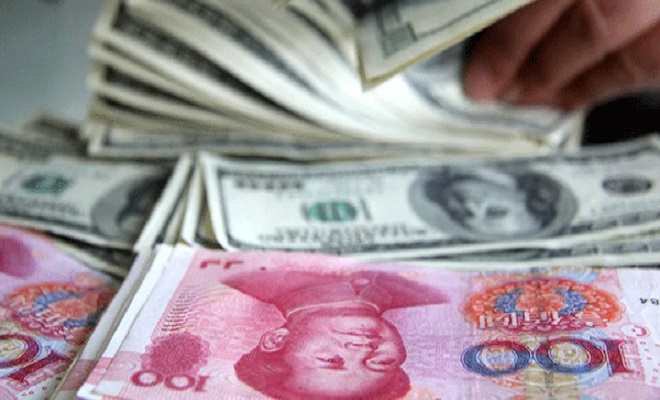 Silver Doctors
Silver Doctors
Economy
Chinese Reduce Their Holdings of US Treasury Bonds for the Fourth Consecutive Month
by Simon Black, Silver Doctors.com:
In December, Sovereign Man’s Chief Investment Strategist advised our Sovereign Man Confidential members on a position to take on the RMB. This week we found that this trade is already up by as much as 300%.
Now looking at the latest news from China we see that our advice still stands, and even stronger than before.
Chinese treasuries were reduced by over $30 billion over the course of 2014, and that trend is continuing at full speed in 2015:
[Editor’s Note: this article was translated by a member of our team, bolding is ours. Read the original article in Chinese here.]
The renminbi remains weak, which has put China in a real dilemma. Wealthy Chinese people are getting worried and are transferring a lot of money to foreign countries, while foreign investors are increasingly skeptical about China.
The central bank in Beijing fixes the initial value for the renminbi, the center point for the currency’s daily trading range. It is roughly the same value, 6.12 to 6.13 to the dollar.
What’s happening now though is that as soon as the markets open in Shanghai, the renminbi sinks close to the bottom of the currency’s trading band, roughly 2 percent lower. Only frequent intervention by the central bank — buying renminbi and selling dollars — prevents the Chinese currency from falling even further.
The weakness in the renminbi is a growing worry for government policymakers and corporate executives.
The currency’s decline reflects the money flowing out of the country. Wealthy Chinese are moving large sums overseas, troubled by President Xi Jinping’s anti-corruption campaign and the country’s slowing economy. Foreign investors are also growing more skeptical of China.
For many years, China kept the renminbi weaker than economic fundamentals dictated, to help its exporters stay competitive in foreign markets. But a weak renminbi is no longer an unalloyed advantage.
Chinese banks and companies have borrowed overseas an estimated $1 trillion in mostly short-term, dollar-denominated debt over the last five years. They were betting that the renminbi would continue its decade-long gradual appreciation, which would have made their debts in dollars less expensive to repay. But the depreciating renminbi makes that debt more costly.
That puts central bank officials in a quandary. “They cannot afford to let it depreciate too quickly,” said Liu Li-gang, a China economist at ANZ, a big Australian bank. “Firms could be pushed into default.”
Read More @ Silver Doctors.com












